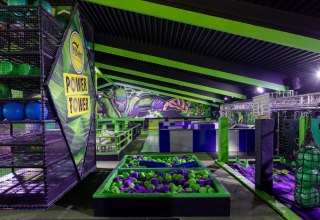The Kunsthalle Rostock shows exhibitions of contemporary art and modern classics. The listed building (1969) houses a collection of graphic sheets, paintings and sculptures, especially pieces of the region and East German art.
The Kunsthalle was originally intended as an exhibition pavilion for the presentation of the Biennale of the Baltic Sea Countries, Norway and Iceland, which was organized every two years from 1969 onwards to coincide with the Rostock Baltic Sea Week. Contrary to this conception, the founding director, Dr. Horst Zimmermann, began to build up his own collection for the Kunsthalle as early as 1964 in order to establish the building as an art museum in the following years. The typical tasks of a museum - collecting, preserving, researching and communicating - were (and still are) among the Kunsthalle's core competencies.
Away from the international biennial, the Kunsthalle presented a large number of thematically diverse expositions. The focus was on East German modern art (i.e. art from the GDR) as well as on works by Scandinavian and regional artists. Until 1990, the Kunsthalle's collection consisted mainly of graphics, sculptures and paintings. The majority of the holdings were acquired between 1964 and 1990 or added to the collection through donations.
In the course of the German-German reunification of 1990, changes in the Kunsthalle also became noticeable. Changing directors, a lack of funding for modernization and exhibitions, and an absence of visitors brought troubled years to the exhibition house, during which both its reputation and raison d'être were at stake.
Since 2009, the Kunsthalle Rostock has been run by a private association under the direction of Dr. Jörg-Uwe Neumann. Since then, nationally and internationally renowned artists and photographers have exhibited in the tradition-rich house on the Swan Pond: among them Arno Rink, Gerhard Richter, Arnulf Rainer, Georg Baselitz, Richard Serra, Norbert Bisky and Eugenio Recuenco. In addition to the already established artists, the Kunsthalle team also focuses on young artists and on works from the Scandinavian and Baltic regions.



















